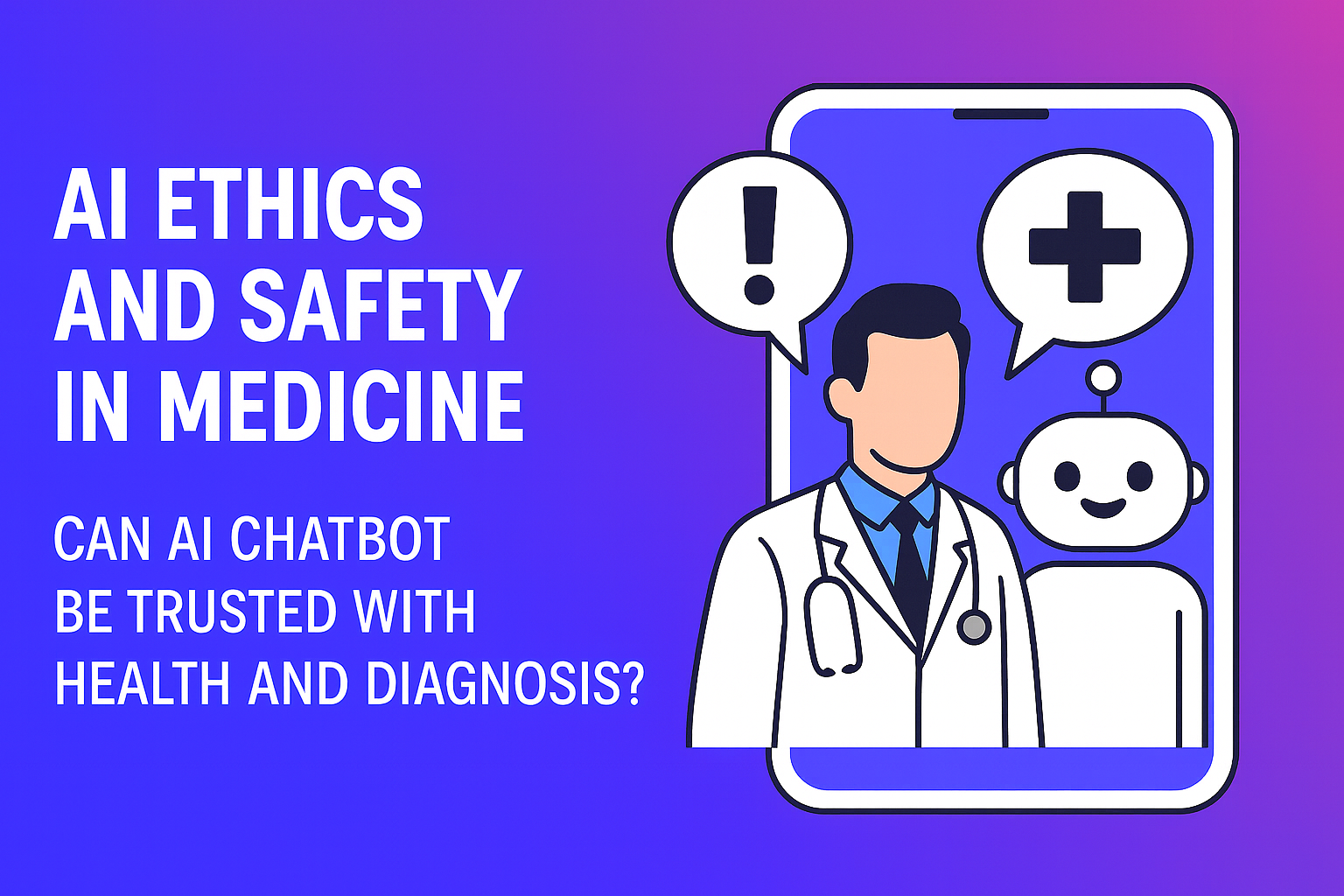AI chatbots are rapidly entering healthcare — they guide patients, remind them about medications, explain prescriptions, and help navigate services.
But what about trust?
Can we rely on artificial intelligence when it comes to health — the most valuable thing we have?
Let’s explore what AI can do, what it must not do, and how to make it an ethical and safe assistant — not a self-proclaimed doctor.
What AI Chatbots Can Do — and What They Shouldn’t
✅ What AI Chatbots Can Do
❌ What AI Chatbots Shouldn’t Do
👉 An AI chatbot is an assistant, not a doctor. Its role is to explain, support, and guide — but not to treat.
Key Risks: Hallucinations, Overreliance, Confidentiality
Hallucinations — AI may invent instructions or mix up facts.
❌ “It’s safe to mix antibiotics with alcohol” — that’s something a poorly configured bot might say.
But what about trust?
Can we rely on artificial intelligence when it comes to health — the most valuable thing we have?
Let’s explore what AI can do, what it must not do, and how to make it an ethical and safe assistant — not a self-proclaimed doctor.
What AI Chatbots Can Do — and What They Shouldn’t
✅ What AI Chatbots Can Do
- Answer FAQs
- Explain treatment schemes and prescriptions
- Help navigate services and patient routes
- Provide reminders, support, explanations
❌ What AI Chatbots Shouldn’t Do
- Make diagnoses
- Prescribe medications
- Interpret complex symptoms
- Make decisions in emergencies
👉 An AI chatbot is an assistant, not a doctor. Its role is to explain, support, and guide — but not to treat.
Key Risks: Hallucinations, Overreliance, Confidentiality
Hallucinations — AI may invent instructions or mix up facts.
❌ “It’s safe to mix antibiotics with alcohol” — that’s something a poorly configured bot might say.
Excessive patient trust
Patients might think the bot is “like a doctor” and skip an in-person consultation.
Patients might think the bot is “like a doctor” and skip an in-person consultation.
Data leaks or loss
Without protection, patient data could end up in the wrong hands.
Without protection, patient data could end up in the wrong hands.
Faulty self-diagnosis
A chatbot might suggest alarming conclusions (“sounds like cancer”) — causing panic.
How Platforms Like EvaHelp Address These Issues
1. Knowledge Control
2. Ban on Diagnoses and Prescriptions
“This information requires an in-person consultation. Please see a doctor.”
3. Data Protection
4. Transparency and Control
Ethical Rules for Using AI Chatbots in Medicine
Conclusion: Responsible AI
AI chatbots in medicine can be powerful tools for:
But only if they work within boundaries, under control, and with ethics.
That’s exactly what a platform like EvaHelp provides — an infrastructure for introducing AI chatbots into healthcare consciously and safely, not randomly.
Want to Try It Out?
A chatbot might suggest alarming conclusions (“sounds like cancer”) — causing panic.
How Platforms Like EvaHelp Address These Issues
1. Knowledge Control
- Chatbot answers only from uploaded documents and knowledge bases.
- Boundaries can be set: the chatbot doesn’t go beyond official instructions.
2. Ban on Diagnoses and Prescriptions
- Eva allows setting restricted scenarios: if a user asks for a diagnosis → chatbot shows a neutral message:
“This information requires an in-person consultation. Please see a doctor.”
3. Data Protection
- All conversations are stored in encrypted form.
- Compatible with internal privacy policies (sensitive data collection can be disabled).
4. Transparency and Control
- All answers can be edited, retrained, and monitored — via logs, analytics, and feedback.
- Any dislike → can be replaced with the correct answer.
Ethical Rules for Using AI Chatbots in Medicine
- AI is only a chatbot. Always.
- Patients must clearly know they’re talking to a bot, not a doctor.
- All scenarios should be reviewed by medical professionals.
- In case of doubt, escalation to a human is mandatory.
- No hidden advice or unproven treatments.
Conclusion: Responsible AI
AI chatbots in medicine can be powerful tools for:
- supporting patients,
- reducing stress,
- increasing doctors’ efficiency.
But only if they work within boundaries, under control, and with ethics.
That’s exactly what a platform like EvaHelp provides — an infrastructure for introducing AI chatbots into healthcare consciously and safely, not randomly.
Want to Try It Out?
